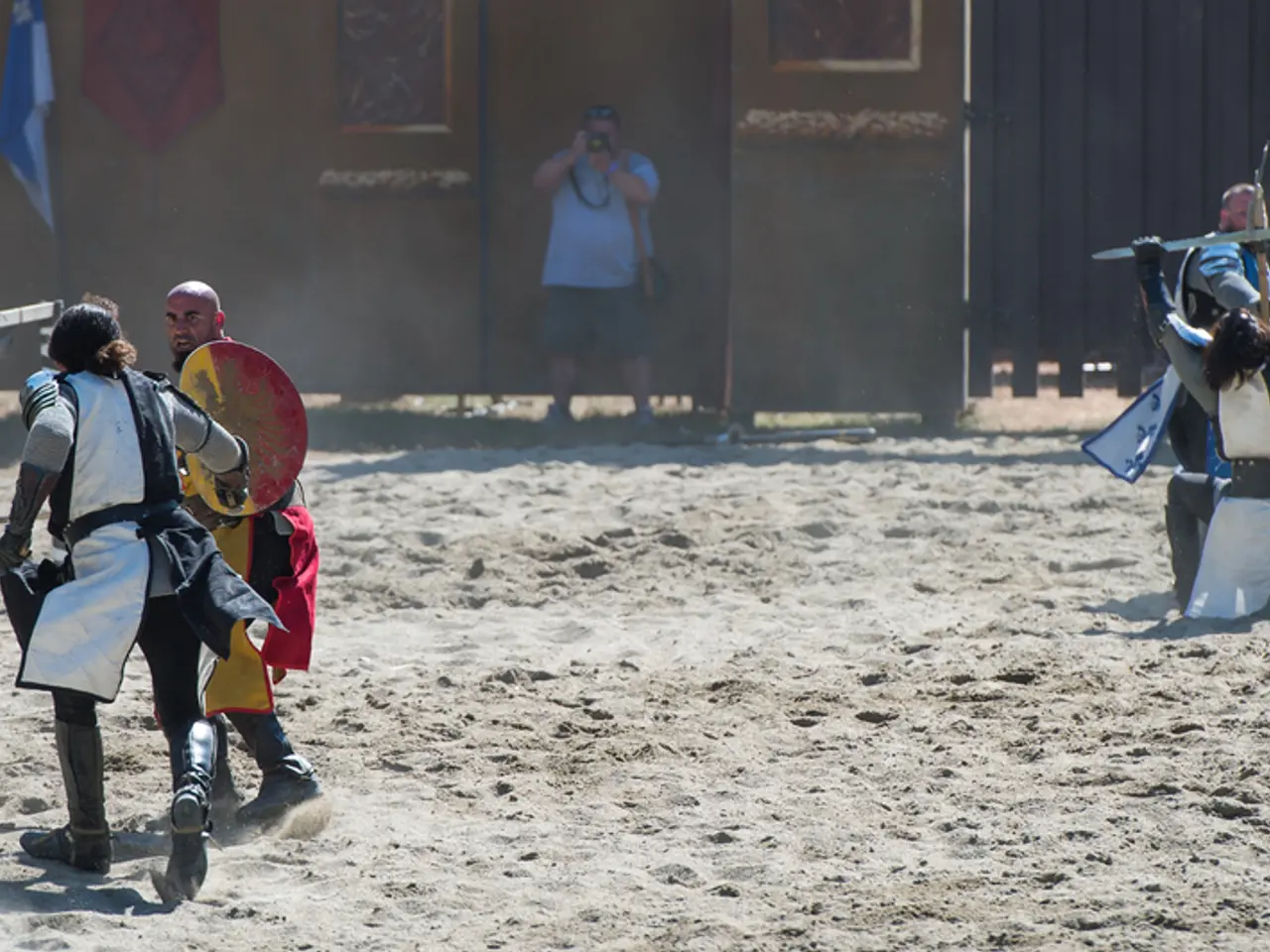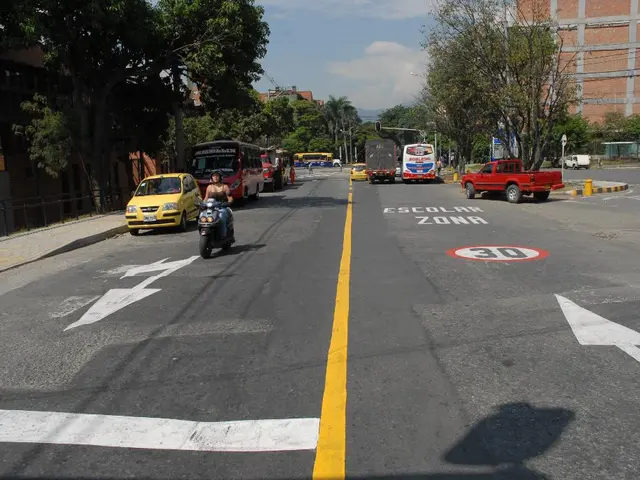Preparations Enforce Trump's National Guard Mobilization, from Los Angeles Olympics to City of Oakland, California
President Trump's Proposed Deployment of National Guard for 2028 Olympics Faces Legal Hurdles
President Trump's plan to deploy National Guard troops for the security of the 2028 Olympic Games in Los Angeles is fraught with legal challenges and implications. The president's authority to deploy troops within states without state cooperation or meeting specific federal criteria is limited.
Key legal constraints include the control states have over their National Guard units, federalization authority, the Posse Comitatus Act, and potential legal challenges from the state.
Generally, the National Guard units are under the control of their respective state governors, except when federalized. For states like California, the president cannot unilaterally deploy National Guard troops for local law enforcement or security without the governor’s consent or without federalizing the Guard under specific legal authorities.
The president can federalize National Guard troops under certain statutory circumstances, but this power is limited and can be contested in court by states. Federalizing the National Guard removes it from state control and places it under federal command, but this authority is traditionally reserved for national emergencies or war, not routine local law enforcement.
The Posse Comitatus Act generally prohibits the use of federal military forces for domestic law enforcement unless explicitly authorized by Congress. The National Guard is exempt when under state control (Title 32 status) but federal troops (Title 10) are restricted. Using federalized troops to enforce law in Los Angeles could trigger Posse Comitatus restrictions unless there is express congressional authorization.
Existing cases such as Newsom v. Trump exemplify how states can legally contest the president’s attempts to federalize or deploy National Guard forces without state consent. If the president were to send troops to California, he could potentially declare an insurrection and invoke the Insurrection Act, according to law professor William Banks.
However, the District of Columbia is unique because the president has direct authority over the D.C. National Guard and can deploy it for law enforcement purposes with fewer legal hurdles. In contrast, Los Angeles is in California, a state with its own governor and National Guard under state control; thus, the legal framework that allows presidential deployment in D.C. does not apply there.
Should the president attempt such an action without state cooperation, it could provoke significant constitutional challenges based on the Tenth Amendment (which reserves powers not delegated to the federal government to the states), the separation of powers, and statutory limits on domestic military use. It could be viewed as federal overreach, undermining state sovereignty and potentially creating political and legal turmoil.
Despite these challenges, President Trump has signed an executive order naming himself chair of a White House task force on the Los Angeles Games. Los Angeles City Councilmember Imelda Padilla expressed concern about the federal government's plans for securing the Olympics, while Oakland Councilman Ken Houston stated that Oakland does not need the federal government's help with public safety, citing progress in reducing crime.
Los Angeles Mayor Karen Bass believes using the National Guard during the Olympics is "completely appropriate," while Trump has expressed interest in deploying the military to protect the Games. Trump is also invoking Section 740 of the District of Columbia Home Rule Act to place the Metropolitan Police Department under direct federal control.
In conclusion, the president’s legal authority to deploy National Guard troops to Los Angeles for the 2028 Olympics is highly constrained, requiring either the cooperation of the California governor or valid federalization under limited conditions. The potential legal and political ramifications of such a deployment could be significant.
- The president's proposal to deploy National Guard troops for the 2028 Olympics in Los Angeles may face legal challenges, as the governor of California must consent to the deployment of troops for local law enforcement or security.
- Federalizing the National Guard, which would remove it from state control and place it under federal command, is traditionally reserved for national emergencies or war, not routine local law enforcement.
- The Posse Comitatus Act generally prohibits the use of federal military forces for domestic law enforcement, but the National Guard is exempt when under state control. Using federalized troops to enforce law in Los Angeles could trigger Posse Comitatus restrictions unless there is express congressional authorization.
- Key political figures, such as Imelda Padilla, have expressed concerns about the federal government's plans for securing the Olympics, while others, like Oakland Councilman Ken Houston, have stated that their cities do not need federal assistance with public safety.
- In a move that could provoke further constitutional challenges, President Trump has signed an executive order naming himself chair of a White House task force on the Los Angeles Games and is invoking Section 740 of the District of Columbia Home Rule Act to place the Metropolitan Police Department under direct federal control.






